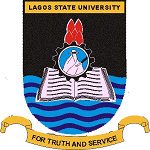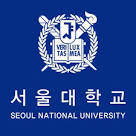Day 1 :
Keynote Forum
Guangping Gao
University of Massachusetts Medical School, USA
Keynote: Human gene therapy - The road to today and beyond
Time : 9:15-10:00

Biography:
Guangping Gao received his Bachelor’s degree in Medicine from the West China Medical School of Sichuan University. He completed his PhD training in Molecular Genetics at Florida International University with his work involving the isolation and characterization of the human aspartoacylase gene and the genetic mutations responsible for Canavan disease, a severe form of inherited neurodegenerative diseases. He joined the University of Pennsylvania (UPenn) in 1994 where he has developed his career in Viral Vector Biology for Gene Therapy, served as the Director of Vector Program of Institute for Human Gene Therapy to oversee the vector discovery and development, process development, and vector core and quality control testing.
Abstract:
Since the first proof-of-concept human application in the early 90’s, gene therapy, particularly viral vector-mediated gene therapy, has now entered a stage of unprecedented revolution in clinical translation and commercialization. Hundreds of clinical trials have been done or are under way, hundreds of gene therapy companies established and went to IPO worldwide. To date three gene therapy drugs have been commercialized: Two in China and one in Europe, and several others are in the process of final approval by FDA in the U.S. Gene therapy can be accomplished through in vivo and ex vivo approaches by gene replacement for loss-of-function genetic diseases, gene silencing for gain-of-function genetic disorders, gene editing for any genetic diseases and gene addition for treating acquired infectious diseases or cancer. A major challenge in gene therapy is how to efficiently and safely deliver the therapeutic gene to the tissue and cell types needed and make it work as long as possible, ideally accomplishing lifetime gene correction by a single dose. The vehicle to deliver the gene payload, called vector, is the key element for gene therapy. The progress of human gene therapy in the past decades has been primarily driven by vector development. Among all different vectors available for gene therapy to date, adeno-associated virus (AAV)–based vector stands out for its high efficiency, stability, and low immunogenicity/toxicity, holding great promise for different gene therapy applications. AAV is a common benign residential virus that can persist in primate tissues for life time without integrating into host genomes and causing disease. This presentation will review the key principles, history, current status, main challenges and future directions of human gene therapy. The presentation will showcase discovery and development of novel AAV vectors and examples of AAV gene therapy development for treating inborn metabolic errors, neurodegenerative diseases, infectious diseases and cancer by gene replacement, somatic in vivo gene editing, gene silencing and gene addition therapy as well as using rAAV for simple and robust embryonic genome editing to create rodent and nonhuman primate animal models of human diseases.
Keynote Forum
John D Loike
Columbia University College of Physicians and Surgeons, USA
Keynote: Ethical challenges in tampering with the Holy Grail: Gene editing technologies
Time : 10:00-10:45
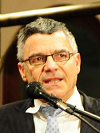
Biography:
John D Loike, PhD serves as Director for Special Programs for the Center for Bioethics and is the Co-Director for Graduate Studies in the Department of Physiology and Cellular Biophysics at Columbia University College of Physicians and Surgeons. He is also an Advisory Board Member of the Columbia University Center for the Study of Science and Religion, Creator and Faculty Editor of the Columbia University Journal of Bioethics, and Course Instructor for Crossroads in Bioethics, a course for undergraduates offered each spring at Columbia College. His areas of interest in bioethics include stem cells, cloning, neuroethics, bioterrorism, and the interface of science and religion. He has co-organized several national and international conferences on Genetics and Bioethics, and he is the Founding Co-director of BIOCEP (BIOethical Cross-cultural Education Program), a two-week intensive summer internship program designed to promote educational and cultural exchange in medical ethics (medical tourism, emerging infections, stem cell research, reproductive medicine, etc.) with students from Mahidol University in Bangkok, Thailand.
Abstract:
Abstract
New biotechnologies are transforming human life, but are also raising profound bioethical questions. It is critical to assess these bioethical questions before adapting biotechnologies to clinical trials or to commercial applications. Gene editing is one example in which current and future potential medical and scientific benefits and risks of a technology may impact the way society should deal with inherent bioethical challenges. Some ethicists believe that geneticists using CRISPR (clustered regularly interspaced short palindromic repeats)/Cas in germline editing technologies are “playing God” and this may precipitate a backlash from nature that could be disastrous to the human race. There are other ethical questions associated with CRISPR. Will CRISPR lead us down a path to create designer babies? Is it morally legitimate to alter the genome of our children without their autonomous consents? How will eradicating a plant or animal species impact the overall bio-environment? This keynote will highlight critical bioethical issues that every scientist needs to consider when making decisions about translational biotechnologies. The potential benefits of CRISPR can be breathtaking. Currently CRISPR is being tested to reprogram, genetically, human T lymphocytes to kill lung cancer, to correct genetic mutations in patients with sickle cell anemia, and to instruct bacteria to self-destruct, thereby offering a new method to fight antibiotic resistant bacteria. CRISPR could be applied to non-therapeutic situations such as changing hair color, improving human intelligence or enhancing athletic capacity. CRISPR is not just a method to therapeutically edit the genomes of human embryonic cells; it is a powerful, efficient tool for editing genes in any organism. CRISPR can be used to eliminate pathogenic species such as Zika-carrying mosquitoes, to bring extinct animals back to life or modify, genetically, plants that are resistant to infection and drought. Without knowing all of the risk or benefits of CRISPR, a critical bioethical question emerges - how should we proceed in a new era of Promethean overreach to modify the germline in human beings, plants and animals? Balancing the use of new biotechnologies which can improve the quality of life with the introduction of bioethical challenges to the natural process of molecular genetics will be the focus of this critical keynote address.
- Molecular Biology | Gene Therapy and Genetic Engineering | Cell and Gene Therapy | Cell Cancer Immunotherapy
Location: Busarakam 3
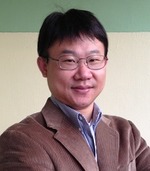
Chair
Jiangwen Zhang
University of Hong Kong, Hong Kong
Session Introduction
Lin Zhi-Xiu
The Chinese University of Hong Kong, Hong Kong
Title: Isorhynchophylline improves learning and memory impairments induced by aluminum chloride in mice
Time : 11:00-11:30
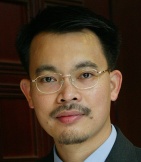
Biography:
Lin Zhi-Xiu is the Acting Director and Associate Professor of School of Chinese Medicine, The Chinese University of Hong Kong. He obtained his PhD degree in Pharmacognosy from King’s College London in 1999. He has rich experience in studying the neuroprotective effects of Chinese medicines and natural products. Over the years, he has published over 150 research articles on Chinese medicines and natural products, among them, over 110 articles are in the SCI-cited journals. This study aimed to investigate the neuroprotective effect of isorhycnhophylline (IRN) in aluminum chloride (AlCl3)-treated mice and explore the molecular mechanisms in the brain of mice. The results showed that IRN treatment could improve the cognitive deficits and reverse the biochemical changes induced by AlCl3. The results from the present proposed study would form a solid stepping stone leading to future clinical trial of IRN on Alzheimer’s disease.
Abstract:
Isorhynchophylline (IRN), an alkaloid isolated from Uncaria rhynchophylla, has been reported to improve cognitive impairment induced by beta-amyloid in rats. However, whether IRN could also ameliorate the aluminum chloride (AlCl3)-induced mouse memory deï¬cits is still not clear. In the present study, we aimed to investigate whether IRN had potential protective effect against the AlCl3-induced cognitive deficits in mice. Mice were given a subcutaneous injection of AlCl3 (50 mg/kg) and orally administered IRN (20 or 40 mg/kg) daily for 8 weeks, followed by assessing spatial learning and memory function by the Radial Arm Maze test. The results showed that IRN significantly improved spatial learning and memory function in the AlCl3-treated mice. In the mechanistic studies, IRN significantly increased the level of glutathione (GSH) and the activities of superoxide dismutase (SOD) and catalase (CAT), while decreased the level of malondialdehyde (MDA) in the brain tissues of the AlCl3-treated mice. Moreover, IRN (40 mg/kg) significantly inhibited/decreased the acetylcholinesterase activity, as well as the activation of nuclear factor kappa B (NF-ĸB) in the brain tissues of AlCl3-treated mice. These results indicate that IRN was able to ameliorate cognitive deficits induced by AlCl3 in mice, and the observed actions may be mediated, at least in part, by the inhibition of acetylcholinesterase activity and the enhancement of the antioxidant status of brain tissue.
MarÃa Teresa Navarro-Romero
National Polytechnic Institute, Mexico
Title: Mitochondrial DNA variation and distribution of the Maya pre-Columbian ancient remains found in Puxcatan, Tacotalpa, Tabasco, Mexico and its relationship with native contemporary populations using ancestry network analysis
Time : 11:30-12:00

Biography:
María Teresa Navarro-Romero (PhD student) obtained her Master’s degree in Biotechnology and Bioengineering department at CINVESTAV-IPN after obtaining her Degree in Biotechnology Engineering at the National Polytechnic Institute in Mexico. She developed new forms to produce DNA vaccines, composed by plasmids. Currently, she is in PhD program in the Department of Genetics and Molecular Biology at CINVESTAV-IPN working with ancient DNA of pre-Columbian Mesoamerican cultures. She did one year of research stay for her Doctoral thesis in the Institute of Clinical Molecular Biology at Christian-Albrechts-University from Kiel, Germany using bioinformatics tools applied to next generation sequencing of aDNA. She is interested in Molecular Biology, Genetics, Population Genetics, Network Analysis, Ancient DNA, Mitochondrial DNA Analysis, NGS, Bioinformatics, Ancient Diseases, Historical Demography, Molecular Anthropology, Biotechnology, Plasmid Construction, DNA Extraction, Gene Regulation, Molecular Cloning and Gene Regulation Expression.
Abstract:
Mesoamerica was a region inhabited by multiple cultures that has been divided into three principal periods, the Preclassic, Classic and Postclassic. The ancient Maya were one of the most important pre-Columbian Mesoamerican cultures, this civilization lived in a large region geographically located in the territory of southeastern Mexico, in the states of Campeche, Chiapas, Quintana Roo, Tabasco and Yucatan and the countries of Central America: Belize, Guatemala, Honduras and El Salvador; nevertheless, the knowledge of its origin is very limited. In 2007, several ancient remains were found in the region of Puxcatan-Tacotalpa, Tabasco, Mexico without knowing their temporality, ethnic origin or whether they belong to one or different events across time. To contribute to the knowledge of this population, we decided to focus our study to determine the maternal genetic origin through the analysis of the Hypervariable Region I of Mitochondrial DNA (mtDNA) and its relation with other populations to rebuild genotype characteristics of prehistoric groups and their demography by using molecular biology techniques and the new sequencing technology called Next Generation Sequencing (NGS) to obtain shorter high quality fragments of DNA. In this manner, the study will provide more detailed information about historical, evolutionary and health of the ancient remains from Puxcatan-Tacotalpa. Our findings allowed us to identify the variation and distribution of haplogroup frequency, and to compare ancient and modern population using haplotype ancestry network analysis
Xian Yan-Fang
The Chinese University of Hong Kong, Hong Kong
Title: Long-term treatment with isorhynchophylline reverses chronic unpredictable mild stress-induced depressive-like behaviors via increasing expression of neurotrophins in the rat brain
Time : 12:00-12:30

Biography:
Xian Yan-Fang, a Postdoctoral Fellow at School of Chinese Medicine, The Chinese University of Hong Kong, obtained her PhD degree in 2013 from The Chinese University of Hong Kong. She has rich experience in studying the Chinese medicines and neuroscience. Her team has investigated the neuroprotective effects of Chinese medicines and natural products for more than 10 years. She has published 14 original research articles based on her experimental findings in various SCI-listed academic journals as the first author. In this study, she aimed to examine the anti-depressant-like effect of isorhynchophylline (IRN) in Chronic Unpredictable Mild Stress (CUMS)-treated rats and explore the molecular mechanisms in the hippocampus and frontal cortex of rats. The results showed that IRN treatment could reverse the behavioral and biochemical changes induced by CUMS. The results from the present proposed study would form foundation that may lead to future clinical trial of IRN on depression.
Abstract:
Isorhynchophylline (IRN), an oxindole alkaloid, has been identified as the main active ingredient responsible for the biological activities of Uncaria rhynchophylla. Previous studies in our laboratory have shown that IRN has anti-depressant-like effects in mice. The present study aimed to investigate the molecular mechanisms underlying the antidepressant-like action of IRN by measuring neurotrophins including brain-derived neurotrophic factor (BDNF) and nerve growth factor (NGF) in the non-stressed and Chronic Unpredictable Mild Stress (CUMS)-treated rats. IRN (20 or 40 mg/kg/day) was administered by oral gavage to rats for 5 weeks. The results showed that CUMS caused depression-like behaviors in rats, as indicated by the significant decreases in sucrose consumption and duration of immobility (assessed by forced swim test). In addition, it was found that BDNF contents in the hippocampus and frontal cortex were significantly decreased in the CUMS-treated rats. CUMS treatment also significantly decreased the level of NGF in the frontal cortex of the rats, while markedly enhanced the level of corticosterone in serum of rats. Daily intragastric administration of IRN (20 or 40 mg/kg/day) during the five weeks of CUMS significantly reversed the behavioral and biochemical changes induced by CUMS. Treating non-stressed animals with IRN (40 mg/kg) for 5 weeks also significantly increased BDNF contents in the hippocampus and frontal cortex, and NGF contents in the frontal cortex of rats, but not change was observed in the level of corticosterone in serum of rats. The results suggest that the antidepressant-like action of IRN is mediated, at least in part, by increasing the expression of BDNF and NGF in the selective brain tissues.
John D Loike
Columbia University College of Physicians and Surgeons, USA
Title: Special Session on Changing landscape of Bioethics and Biotechnology
Time : 13:30-14:30
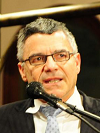
Biography:
John D Loike, PhD serves as Director for Special Programs for the Center for Bioethics and is the Co-Director for Graduate Studies in the Department of Physiology and Cellular Biophysics at Columbia University College of Physicians and Surgeons. He is also an Advisory Board Member of the Columbia University Center for the Study of Science and Religion, Creator and Faculty Editor of the Columbia University Journal of Bioethics, and Course Instructor for Crossroads in Bioethics, a course for undergraduates offered each spring at Columbia College. His areas of interest in bioethics include stem cells, cloning, neuroethics, bioterrorism, and the interface of science and religion. He has co-organized several national and international conferences on Genetics and Bioethics, and he is the Founding Co-director of BIOCEP (BIOethical Cross-cultural Education Program), a two-week intensive summer internship program designed to promote educational and cultural exchange in medical ethics (medical tourism, emerging infections, stem cell research, reproductive medicine, etc.) with students from Mahidol University in Bangkok, Thailand.
Abstract:
Dr. Loike has published many ground-breaking articles on bioethics and specifically deals with bioethics from a Jewish perspective, for which he often teams with Rabbi Dr. Moshe David Tendler. Serving on an Rabbinical Council of America panel on stem cell research, Dr. Loike highlighted scientific innovations that could allow for additional research, while alleviating the ethical questions posed by the scientific use of embryonic stem cells
Bumrae Cho
Mgenplus Co., Ltd., South Korea
Title: Production of insulin gene knockout piglets using CRISPR/Cas9 system
Time : 14:30-15:00

Biography:
Bumrae Cho has his expertise in genetic modification and generation of donor cells for somatic cell nuclear transfer. Especially, he is focusing on the generation of genetically modified pigs for xenotransplantation, disease resistance pigs, and various pig models to investigate human disease. His research interest is genetic modification of SCNT donor cells using CRISPR/Cas9 system to produce various pig models including human disease mimicking pig model, viral disease-resistant pig, pigs as an organ donor for the xenotransplantation. Now, he is developing genetically modified pigs such as pigs mimicking type I diabetes, porcine epidemic diarrhea resistant pigs, and dengue virus sensitive pigs.
Abstract:
Diabetes mellitus is the chronic disease with severe complications including diabetic nephropathy, neuropathy, and cardiovascular disease. To investigate the pathophysiology of diabetes or develop the drugs for diabetes, various animal models have been used. Although rodent models are commonly used for diabetes research, the interest about the pig diabetic models is increasing because of their similarity with human in many aspects like size, pathology, physiology, and metabolism. There are some methods to generate diabetic pig model. The treatment of chemicals like streptozotocin is generally used and pancreatectomy is also one of the methods. Recently, genetically modified pigs which were modified genes related with pathogenesis to induce diabetes were reported. In this study, we have successfully generated insulin gene knockout piglets by targeting the porcine INS gene in somatic cells using CRISPR/Cas9 system combined with somatic cell nuclear transfer (SCNT). Single cell derived somatic cell colonies carrying a modified INS gene were generated using CRISPR/Cas9 system and their genotypes were confirmed by T7E1 assay and Sanger sequencing method; targeting efficiency was 40.4% (21/52). After SCNT and embryo transfer, eight piglets (including five stillborn piglets) were born. As expected, INS knockout piglets presented high blood glucose levels. Also, the expression of insulin in the pancreas was absent in those piglets. This study demonstrates effectiveness of CRISPR/Cas9 system in generating genetically modified pigs. We expect that these insulin gene knockout pigs can be used in diabetes research as an animal model for the efficacy and safety test of new drugs and the recipient of islet transplantation to investigate optimal strategies for islet transplantation.
Qiuju Yuan
The Chinese University of Hong Kong, Hong Kong
Title: The effect of spinal cord injury on beta-amyloid deposition and inflammation in TgCRND8 mouse model of Alzheimer’s disease
Time : 15:00-15:30

Biography:
Qiuju Yuan has research focus on the following aspects: To understand mechanisms underlying neuronal death and regeneration after axonal injury; to explore therapeutic approached for neuronal injury and neurodegenerative diseases such spinal cord injury, peripheral nerve injury, stroke, multiple sclerosis and Alzheimer’s disease.
Abstract:
Traumatic brain injury (TBI) is a risk factor for developing Alzheimer's disease (AD) in humans. Mechanistically, TBI induces AD-like amyloid beta (Aβ) plaque pathology within hours of injury. However, the effect of TBI on the acute onset and progression of Aβ plaque pathology is not replicated in various experimental studies. It has postulated that Aβ plaque pathology induced by TBI may result from massive accumulation of amyloid precursor protein (APP) in damaged axons. This study utilized spinal cord transection to examine whether such extensive axon damage may acutely induce the onset and progression of Aβ plaque deposition at 3 days post-injury in the TgCRND8 transgenic model of AD at the age of 3- and 20-month-old. After injury, widespread axonal pathology indicated by intra-axonal co-accumulations of APP and its product, Aβ, was observed in perilesional region of the spinal cord in TgCRND8 mice at the age of either 3 or 20 months as compared to WT mice. However, no Aβ plaques were found in 3-month-old TgCRND8 mice. The 20 month-old TgCRND8 mice demonstrated spinal cord transection significantly reduced Aβ plaque load in the lesion site compared to sites distant to the injury and the corresponding area in sham mice (p<0.01). The lesion site of spinal cord area was occupied by CD68 positive macrophages/activated microglia in injured mice compared to sham animals. Therefore, our present data may not support the supposition that plaque formation may be correlated with amount of axonal pathology.
Luther A Agaga
Lagos State University Nigeria
Title: Are African universities joining the genomic revolution? Emergence of postgraduate programs in genetics
Time : 15:30-15:50

Biography:
Luther A Agaga is a final (6th) year Medical student of Lagos State University College of Medicine, Nigeria, who has a very keen interest in Genetics as a tool for medical transformation and hopes to pursue it as a career path through postgraduate study. He currently participates actively in research with mentors from different departments in the College of Medicine.
Abstract:
Statement of Problem: Postgraduate education is considered important as it provides educational institutions opportunities to build their research capabilities, enhance academic reputations and financial gain. In developed countries, with vast programs, postgraduate education contributes to the body of knowledge available per time. This often translates to innovations and societal development. Genetics is a leading aspect of science and research in the world today that affords numerous opportunities, particularly in the identification and understanding of the nature of diseases, with the possibilities of eradication of such diseases. Postgraduate programs in genetics are therefore pivotal, especially in this Genomic Revolution era, to serve as an instrument for development of targeted therapies. Consequently, the more such programs, the greater the tendency for innovation. We investigated if African universities are offering postgraduate programs in Genetics using the database http://www.university-directory.eu.
Methodology: Through an online search query titled “Postgraduate programs in genetics in Africa” over “university-directory.eu”, which is an online world university directory, data was extracted.
Findings: There are 54 countries in the African continent. The database investigated, www.university-directory.eu, indicated that postgraduate programs in genetics was offered in five (9%) African countries. The database listed these as 13 universities and twenty one postgraduate programs in total. African countries offering postgraduate programs in genetics: Two South African universities (15%) offered a total of seven programs (33%); three Egyptian universities (23%) together offered four programs (19%); two Algerian universities (15%) together provided three programs (14%); four Kenyan universities (31%) offered five programs (24%) altogether; and two Nigerian universities (15%) together offered two programs (10%).
Conclusion: Postgraduate programs in genetics are emerging in African universities.
- Clinical Genetics | Molecular Genetic Pathology | Molecular Biotechnology | Regulation of Gene Expression | Genetic Transplantation
Location: Busarakam 3
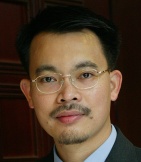
Chair
Lin Zhi-Xiu
The Chinese University of Hong Kong, Hong Kong
Session Introduction
Seungwoo Lee
Seoul National University, South Korea
Title: Nucleotide composition and expression of plasma microRNAs in horse (Equus caballus)
Time : 12:05-12:35

Biography:
Seungwoo Lee he is student at Seoul National University, South Korea.
Abstract:
The circulating microRNAs (miRNAs) in plasma or serum are stable under high levels of ribonuclease activity and could function in tissue-to-tissue communication, suggesting that they may have unusual structural characteristics compared with non-circulating miRNAs. In this study, the expression of plasma miRNAs in horse and their characteristic nucleotide composition were examined and compared with non-plasma miRNAs. Highly expressed plasma miRNA species were not part of the abundant group of miRNAs in non-plasma tissues, except for the eca-let-7 family. eca-miR-486-5p, eca-miR-92a, and eca-miR-21 were among the most abundant miRNAs in horse plasma, and their human orthologs also belong to the most abundant group of miRNAs in human plasma. Uracil and guanine were the most common nucleotides of both plasma and non-plasma miRNAs. Cytosine was the least common in plasma and non-plasma miRNAs, although levels were higher in plasma miRNAs. Plasma miRNAs also showed higher expression levels of miRNAs containing adenine and cytosine repeats, compared with non-plasma miRNAs. These observations indicate that miRNAs in the horse plasma have a unique nucleotide composition.







